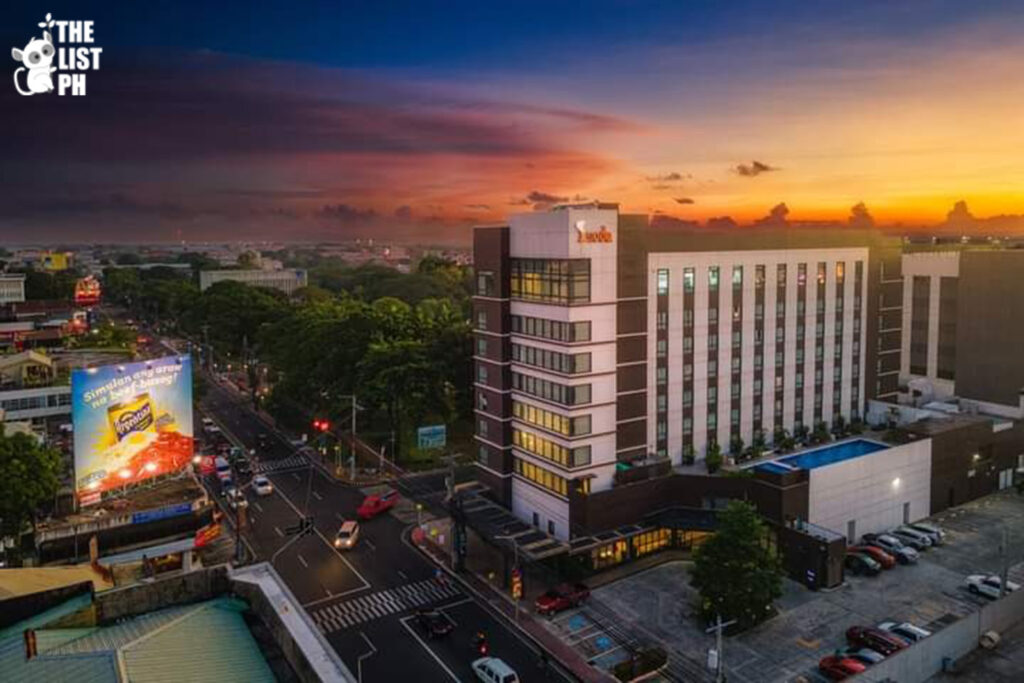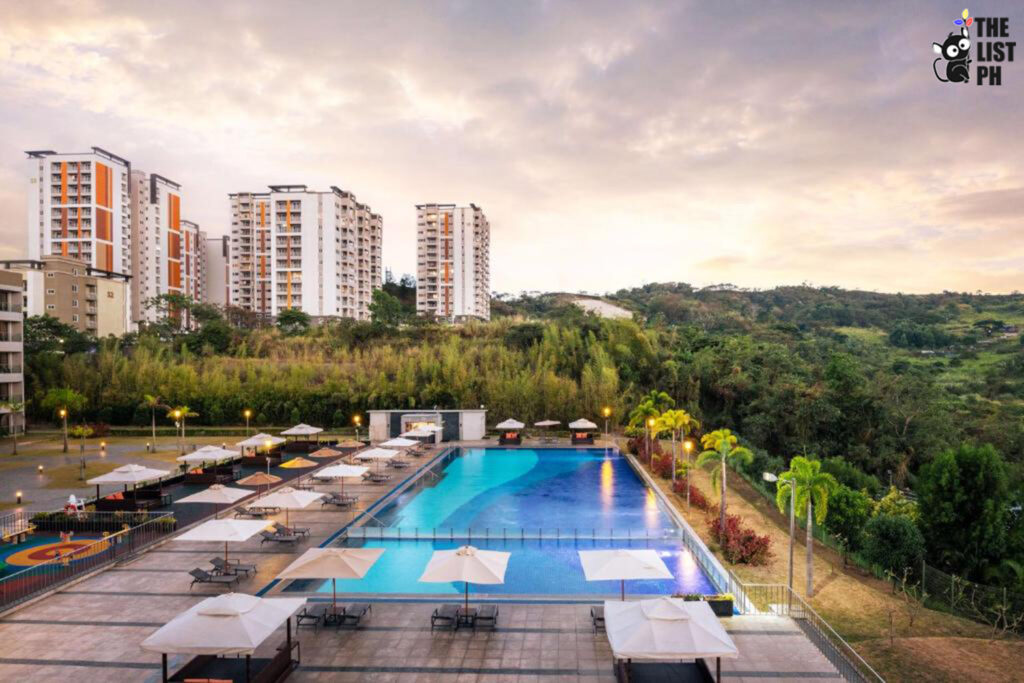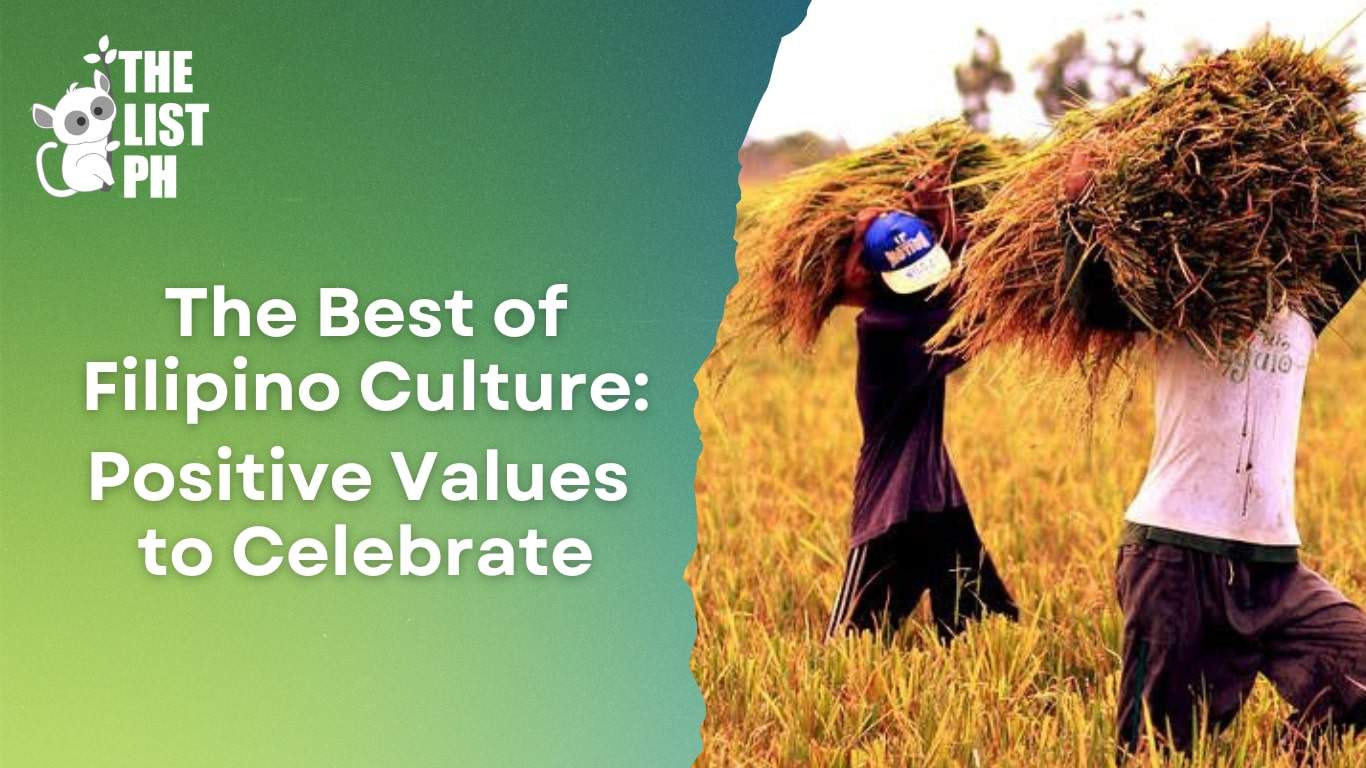
The Best of Filipino Culture: Positive Values to Celebrate
Filipino values are an essential part of Filipino culture and society. They shape how we interact with others and approach life.
They’ve also helped Filipinos overcome challenges and build a solid and vibrant culture.
In this article, we explore 12 positive Filipino values that are innate and integral to Filipino culture.
1. Family-orientedness
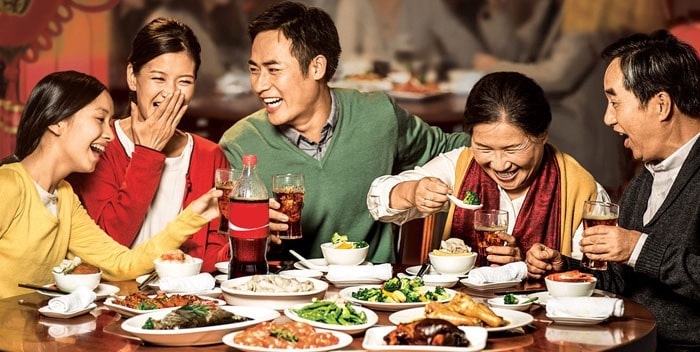
Family is considered the most important thing in a Filipino’s life. Filipinos are close to their family, especially grandparents and parents.
Filipinos respect their elders and care deeply for them because they know they may not have much longer to live if they don’t get proper care or attention.
Family-orientedness is demonstrated in various ways, such as extended family living together, caring for older members, and supporting each other during difficult times.
This results in a strong support system for each individual, promoting a sense of security and stability.
This value is evident in how Filipinos prioritize family over individual needs and desires.
This value plays a crucial role in preserving the rich cultural heritage of the Philippines and helps to maintain a harmonious society where people are willing to help each other.
2. Strong sense of community

Filipinos are known for their strong sense of community and their ability to come together and support one another in times of need.
This trait is often referred to as “Bayanihan,” a traditional Filipino value that emphasizes community spirit and cooperation.
The word itself refers to helping one another, typically by working together to accomplish a difficult task for an individual to do alone. It is a positive aspect of Filipino culture that has been passed down for generations.
One of the key benefits of being community-minded is the sense of support and belonging it provides.
In the Philippines, family and community are highly valued; it is reflected in how Filipinos look out for each other and work together in order to achieve common goals.
One example is that it is common for extended family members to live together and share resources.
This close-knit living arrangement allows for the sharing of responsibilities and the support of one another, which can lead to greater stability and well-being for all involved.
Whether helping a neighbor in need or banding together to complete a community project, Filipinos understand the importance of working together for the greater good.
3. Respect for elders and authority
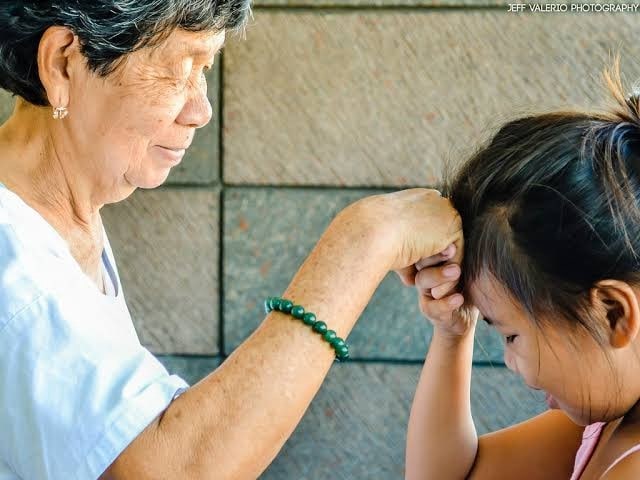
Respect is a core value in Filipino culture, and it is instilled in children from a young age.
This value is demonstrated in various ways, such as “pagmamano,” which shows respect to elders by taking their hand and pressing it to one’s forehead.
Moreover, Filipinos use polite language such as “po” and “opo” when addressing authority figures and elders. They also show deference by following traditional customs and practices.
This strong sense of respect extends to elders, authority figures, and even strangers, making it a positive trait that helps create a harmonious and cohesive society.
In this way, respect is a fundamental aspect of Filipino culture and one of the reasons why Filipinos are known for their warm and welcoming nature.
4. Religious adherence
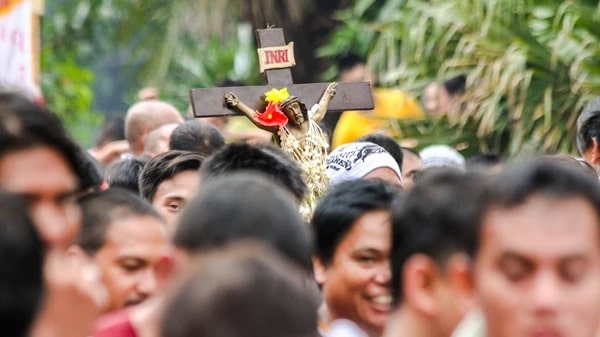
Religion is an essential aspect of Filipino society, with the majority of Filipinos being Catholic. Religious traditions and practices are deeply ingrained in Filipino culture and integral to daily life.
Spirituality is also a crucial aspect of Filipino culture, with many Filipinos believing in the power of prayer, faith healing, and the supernatural.
Regardless of their specific faith, most Filipinos prioritize their spiritual practices and actively participate in activities related to their faith.
This value is reflected in their daily lives through regular prayer, attending religious services, and participating in religious activities and traditions like celebrating Flores de Mayo and the practice of Holy Week.
This strong faith serves as a source of personal strength and guidance and fosters a sense of community and togetherness among Filipinos.
5. Humor and positivity
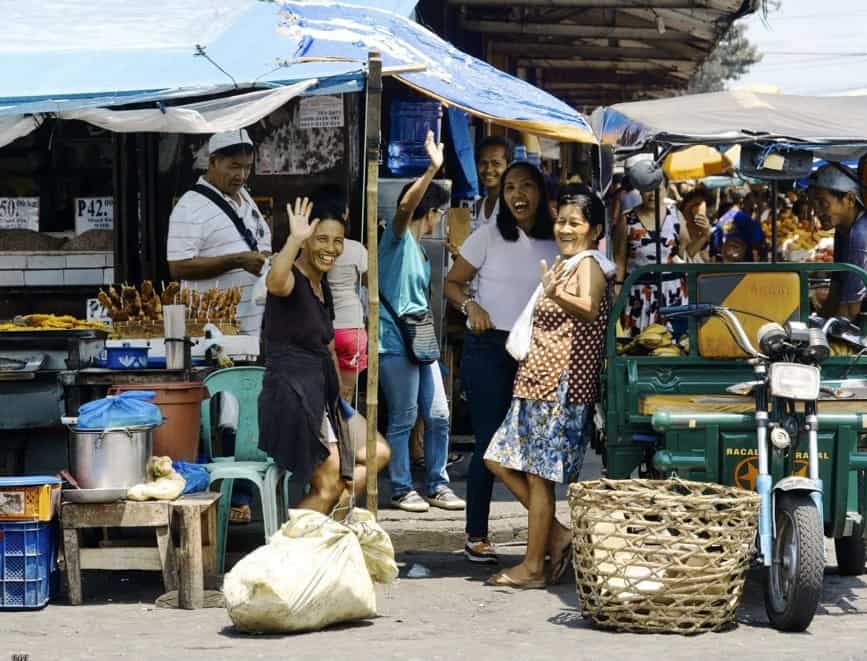
Humor and positivity are two of the most critical Filipino values. Filipinos are known for their sense of humor, and they’re naturally positive and optimistic.
Filipinos are known for their ability to find humor in difficult situations and their ability to maintain a positive outlook despite challenges.
This trait is often seen as a coping mechanism for dealing with adversity and a way to bring people together and lift each other’s spirits.
Whether through jokes, storytelling, or simply sharing a laugh, Filipinos have a unique ability to find the humor in life’s difficult situations and use it to build stronger, more resilient communities.
This trait helps create a sense of community and belonging among Filipinos, and it can be a powerful tool for resolving conflicts and building bridges.
6. Delicadeza
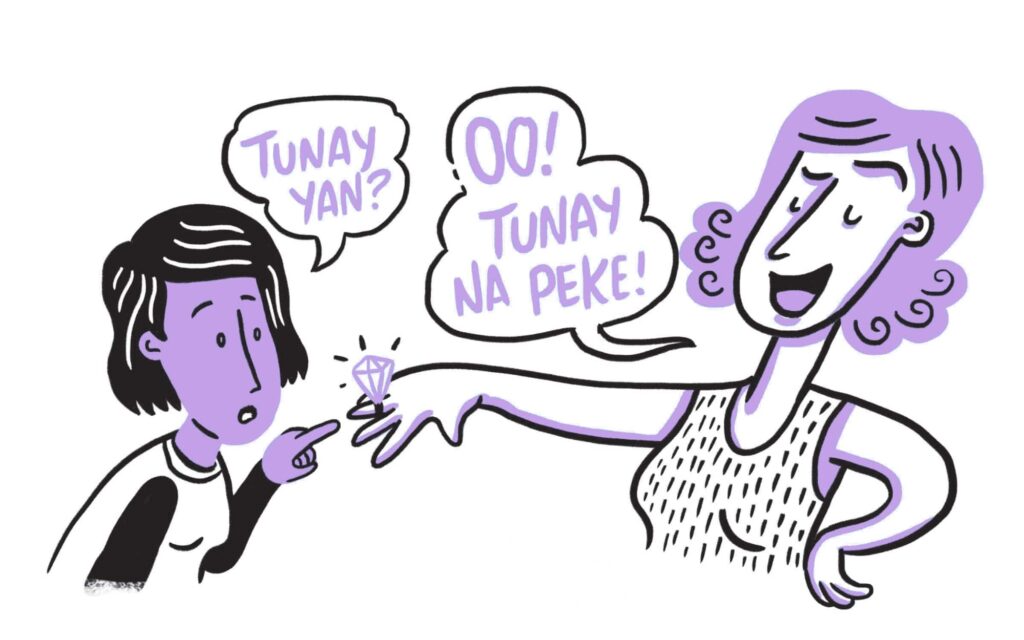
Delicadeza is the local concept of being polite and courteous. It’s a significant value in Filipino culture, and it’s one that you can actually learn from the people themselves!
They believe in giving credit where credit is due, without holding grudges against someone who has wronged them—and this also extends to strangers.
If a foreigner speaks some broken Tagalog (Filipino language), it won’t matter if they don’t understand him/her; what matters is how kind they are since they tried to speak in the Filipino language.
As for generosity, families often give presents after birthdays or anniversaries because it shows love for the person or the celebrant; they don’t expect anything back in return. Instead, they wish them happiness during the special occasion!
7. Hospitality

Filipino hospitality is a well-known aspect of local culture. Known for their warm and welcoming nature, Filipinos have a long-standing tradition of opening their homes and hearts to guests and visitors.
Hospitality is seen in their inviting smiles, generous offers of food and drink, and the lengths they go to make their guests feel comfortable.
Whether offering a place to stay or just sharing a meal, Filipinos believe in treating their guests as if they were family.
This genuine care and compassion are just a few examples of what makes Filipino hospitality truly unique and valued. It is no surprise that this trait has made Filipinos well-loved by travelers and visitors from all over the world.
They are friendly, warm, and kind. They will greet you with a smile on their face and invite you to stay for lunch or dinner if you’re passing through their town or province.
Filipinos also have the knack for making friends easily because most of them have been raised in a culture where it important to be polite and treat others with respect at all times.
This is what Filipinos do best: they welcome everyone who comes into their lives with open arms!
8. Pakikipagkapwa
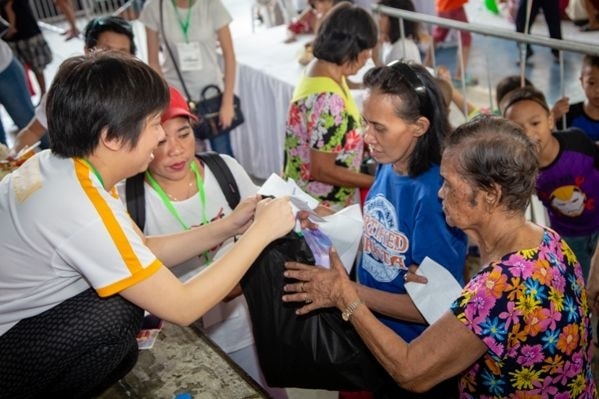
Filipino values are all about caring and compassion. Filipinos will always be there for you, whether it’s your family, friends, or strangers in need.
Filipinos are known for their strong sense of care and compassion.
The value of “pakikipagkapwa,” or empathy, is deeply ingrained in Filipino culture. Filipinos often go out of their way to help and support others, whether it be family or friends, or even strangers.
In Filipino culture, it is believed that one should treat others as they would like to be treated, and this value is often demonstrated through hospitality and selflessness.
For example, it is common for Filipinos to offer food and drinks to guests, even if they may not have much to spare. This value is also evident in how Filipinos help and care for each other in times of need, showing compassion for their fellow man.
This strong sense of community and interdependence is one of the defining characteristics of Filipino culture and is a positive trait that is highly valued among Filipinos.
This value is also one of the reasons why Filipinos are known for their warmth and hospitality, always ensuring that guests feel welcomed and taken care of.
9. Resilience

Filipinos have been through a lot historically. They’ve survived colonization and natural disasters but have also adapted to many challenges by being resourceful and resilient.
Filipino resiliency reflects the strength and determination of the Filipino people. Despite facing numerous challenges, Filipinos have a remarkable ability to bounce back and persevere in the face of adversity.
This is because of strong family ties and community support groups like church groups, schools, and civic organizations that help people stay connected throughout life’s ups and downs (and even more so after typhoons).
These hardships strengthened Filipinos by providing them with opportunities for growth as individuals who could handle anything thrown at them without breaking under pressure.
10. Utang na loob

Utang na loob is a valued concept in Filipino culture. It refers to the moral obligation to repay acts of kindness and highlights the importance of debt of gratitude.
The value is often linked to family, friends, and community and is viewed as a positive aspect of Filipino culture that should be celebrated.
The celebration of utang na loob underlines the significance of gratitude, generosity, and kindness.
It emphasizes the value of relationships and their impact on one’s life. Acknowledging and celebrating this value strengthens the bonds between individuals, and positive attitudes and behaviors are encouraged in society.
Utang na loob also serves as a reminder to never take the kindness of others for granted.
Acknowledging and celebrating this value demonstrates appreciation for acts of kindness and encourages others to pay it forward and continue the cycle of kindness and generosity.
11. Creativity

Creativity is a key part of Filipino culture, and there are many ways in which Filipinos are creative. This can be seen in many aspects of Filipino culture, including advertising and witty business names.
Some notable witty and creative Filipino business names are “Libing Things,” which is a funeral parlor, “Summa Cum Laundry,” a laundry business in Manila, and the sari-sari store called “7-Evelyn.”
In addition to being creative, Filipinos also exhibit their creativity in other ways, such as artistry.
Many artists create beautiful works of art through painting or sculpture; others use music as their medium for expression (such as singers). That is why Filipinos are so obsessed with karaoke!
12. Hard Work
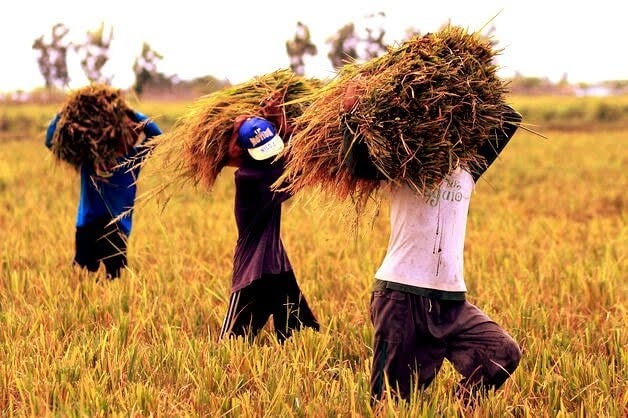
Filipinos are known for their hardworking attitude, strong work ethic, and determination.
Many Filipinos work multiple jobs to provide for their families. This strong sense of responsibility and dedication to providing for loved ones is a positive trait reflected in the country’s strong economic growth.
The Overseas Filipino Worker (OFW) is a testament to Filipinos’ hardworking and resilient nature.
This movement, which has seen millions of Filipinos working abroad to provide for their families, demonstrates the lengths Filipinos are willing to go to achieve their goals and improve their lives.
The OFWs highlight Filipinos’ hardworking and determined spirit and their unwavering commitment to providing a better life for themselves and their loved ones.
The Filipinos have a strong sense of duty, which makes them willing and able to put in long hours during the day and even longer ones at night or on weekends.
When needed for family responsibilities or other chores around the house—cooking dinner or washing clothes by hand instead of using an automatic machine (which is also considered wasteful)—Filipinos will happily prioritize this.
That wraps it up for our list! Understanding and appreciating these values can give a deeper insight into Filipino society and culture.
What do you think? Don’t hesitate to share your experiences and opinions; leave a comment below!



